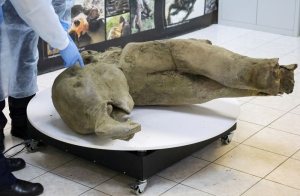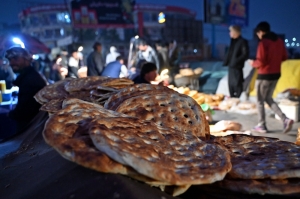- Home
- -
- News
Assisted dying in Europe: Laws across nations from the Netherlands to Portugal
- admin
- 29 Nov, 2024
PARIS, Nov 29 — UK lawmakers will debate yesterday a new bill to legalise assisted dying in England and Wales that has sparked concern among opponents about its implications.
In Europe several countries already allow the terminally ill to receive help to end their lives.
Here is a round-up of the situation on the continent:
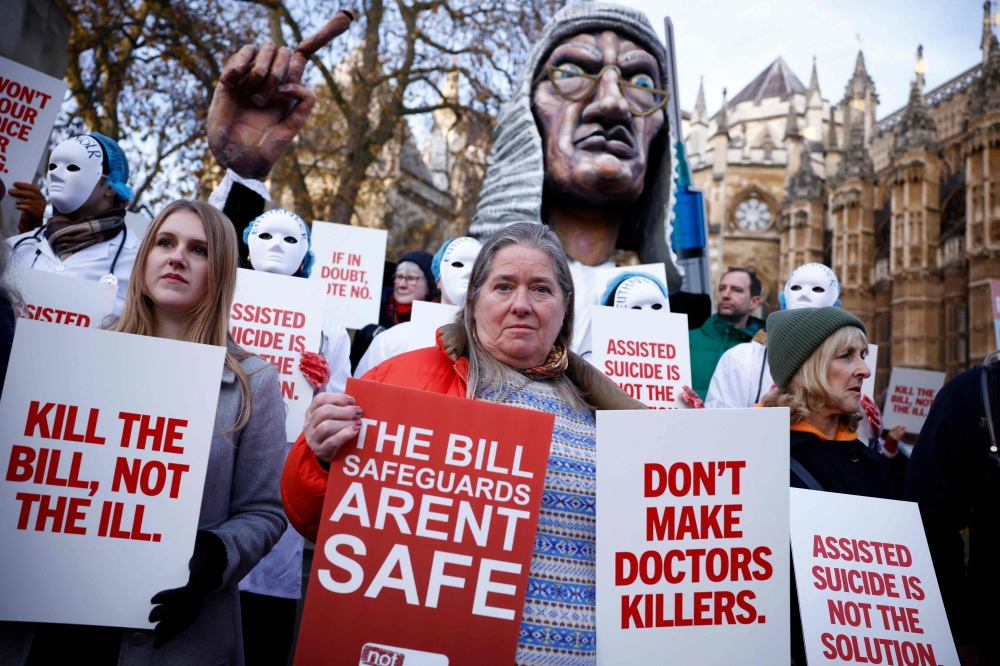
Dutch first
In 2002, the Netherlands became the first country in the world to legalise active euthanasia, whereby doctors administer lethal doses of drugs to patients suffering from an incurable condition.
It also legalised assisted suicide, where patients can receive help to take their own life voluntarily.
The Dutch law said the patient must have “unbearable suffering with no prospect of improvement” and must have requested to die in a way that is “voluntary, well considered and with full conviction”.
In 2012, the Netherlands expanded the law to authorise euthanasia for over-12s in great suffering, provided they have parental consent, and in 2020 to patients with severe dementia, if the patient had requested the procedure while still mentally competent.
The Dutch government in 2023 also approved euthanasia for children under 12 after years of debate, permitting mercy deaths for young minors suffering “unbearably and without hope”.
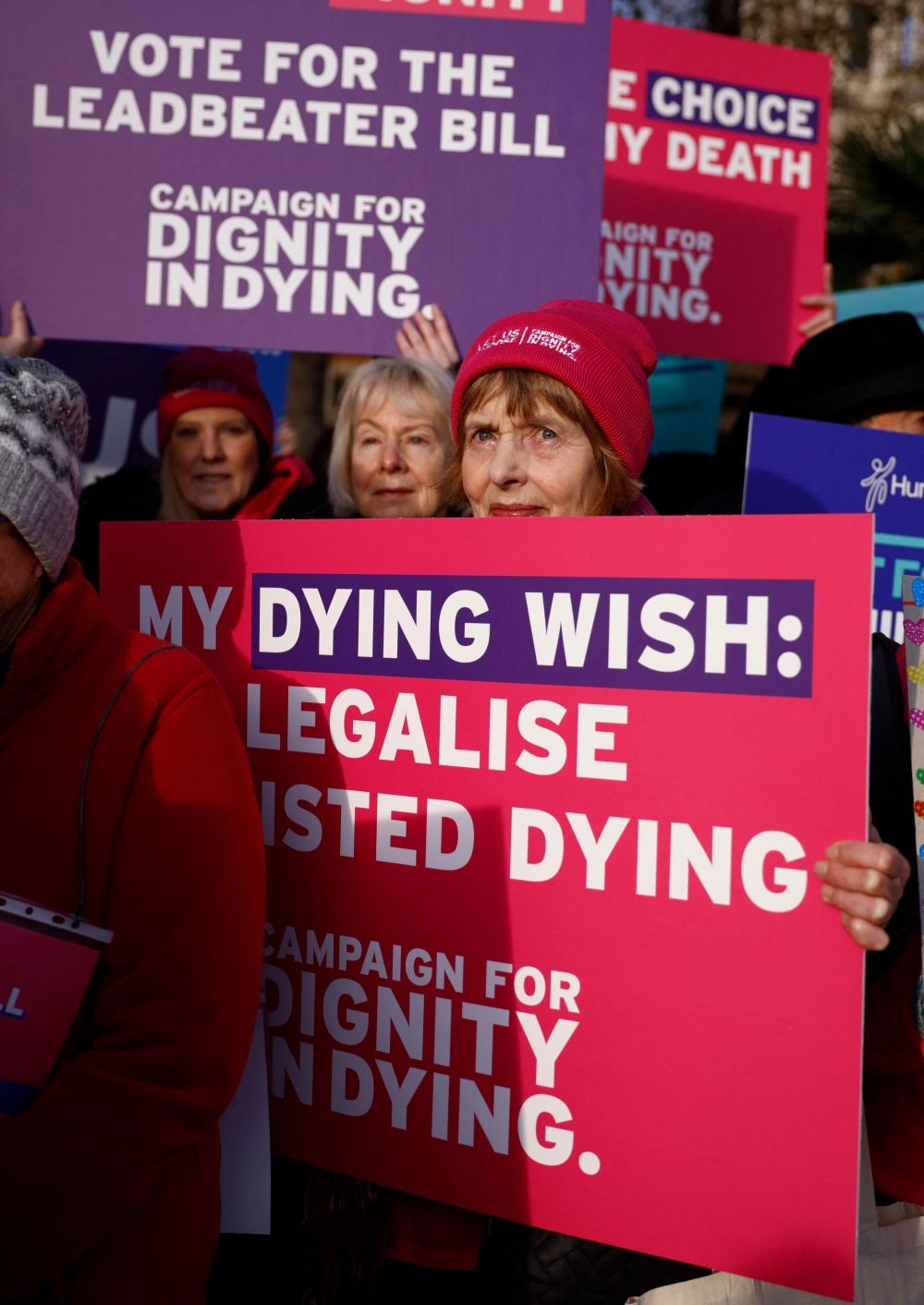
Belgium, Luxembourg, Spain, Portugal
Belgium was the second country to adopt euthanasia and assisted suicide in 2002, with similar caveats to the Dutch.
In 2014 it went further by allowing terminally ill children of all ages to also request the procedure, with the consent of their parents.
Luxembourg decriminalised euthanasia and assisted dying in 2009.
Spain in 2021 authorised euthanasia and medically assisted suicide for people with a serious and incurable illness, followed by Portugal in 2023. In the latter case, the law is not yet in force.
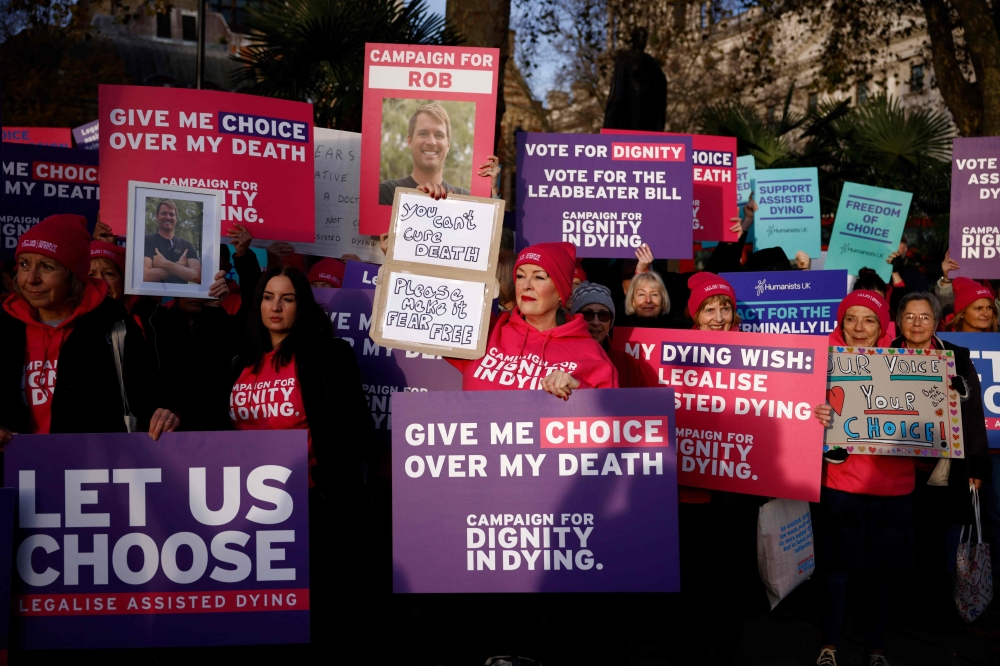
Switzerland
Switzerland, which prohibits euthanasia, has for decades allowed assisted suicide, making it the go-to destination for patients from around Europe looking for assistance to end their suffering.
The growth of so-called “suicide tourism” has caused much soul-searching in Switzerland but the authorities decided in 2011 against restricting the practice.
Neighbouring Austria, a staunchly Catholic nation, also legalised assisted suicide in 2022 after its constitutional court ruled the country was violating citizens’ fundamental rights with the prohibition.
In Italy, where assisted dying is against the law, the constitutional court allowed an exception in 2019.
The court ruled it should not always be punishable to help someone with “intolerable” physical or psychological suffering to commit suicide. — AFP
* If you are lonely, distressed, or having negative thoughts, Befrienders offers free and confidential support 24 hours a day. A full list of Befrienders contact numbers and state operating hours is available here: www.befrienders.org.my/centre-in-malaysia. There are also free hotlines for young people: Talian Kasih at 15999 (24/7); Talian BuddyBear at 1800-18-2327(BEAR)(daily 12pm-12am); Mental Health Psychosocial Support Service (03-2935 9935 or 014-322 3392); and Jakim’s Family, Social and Community Care Centre (WhatsApp 0111-959 8214).
